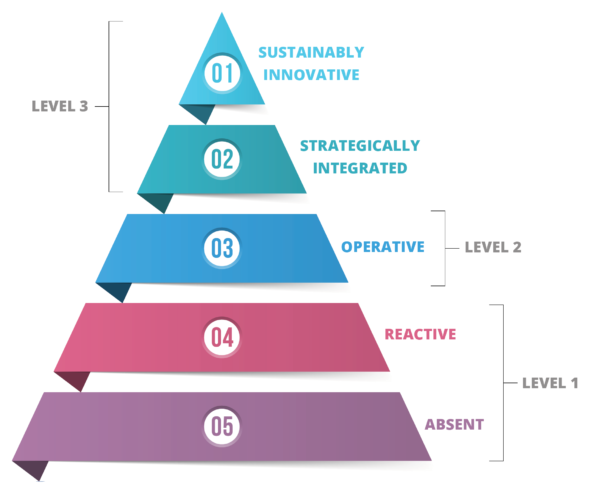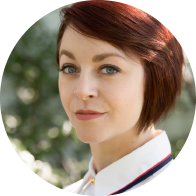The world is changing. Are you?
I ask myself this question often. The first wave of COVID-19 continues here in Canada. I’ve spent the past few weeks writing phrases for clients like, “unprecedented time in our history” and, “remote for the foreseeable future.” I’ve started calling it the “global health situation” instead of the “global health crisis” because I’m tired of fearmongering language. Even though I’m afraid. I’m also really tired of being afraid.
And then, there’s the Black Lives Matter movement. This global awakening we’re (finally, finally) seeing, in the midst of a pandemic, in response to the deep white supremacist roots underlying our collective histories.
All of this has made me step back, and step back hard. I’m asking myself: what can I do? What can my company do? Because COVID-19 has leveled us all; it is a disease that doesn’t discriminate, and it puts us all in danger. The UNDP says: “With an estimated 55% of the global population having no access to social protection, these losses will reverberate across societies, impacting education, human rights, and in the most severe cases, basic food security and nutrition.”
The pandemic, alongside the powerful Black Lives Matter movement, has made inequities that are already present in our society more urgent, more excruciatingly visible.
Realized Worth works with large corporations to create citizenship engagement strategies that put employees at the center of a movement. This movement is straightforward: break down barriers between people. This work of humanizing one another seems even more urgent in our current situation.
Executing citizenship programming comes with a very distinct tension – that employees and people leaders feel they have to choose: achieve the bottom line or create social impact.
It doesn’t have to be a choice.
But, moving toward a company where that tension doesn’t exist means addressing systems and silos that need to be re-imagined and broken down.
Understanding Portfolio Maturity
The maturity of your CSR portfolio is determined by which programs you have – and in some cases, programs you don’t have. Within your available programs, there are certain programmatic elements, and certain configurations that also contribute to maturity.
In the maturity model above, you can see stages 1 through 5, from absent all the way up to sustainably innovative. These stages are grouped into three levels of maturity. Once you analyze your elements and configurations, you can plot existing programs at the different stages and levels of maturity. You can identify opportunities for new programs, or determine which programs are no longer delivering on your objectives. Wherever your programs sit on this spectrum is what determines the sophistication of your overall citizenship engagement portfolio.
To sum it all up, and to go back to the big picture: “maturity” is wherever you are in closing the gap between the bottom line and social impact. Let me be clear – this is an ideal. This is about striving. It’s about looking at your CSR portfolio within the context of the broader business and considering ways you can influence the systems that slow or hinder the marriage of business objectives and social impact. Employees and people leaders shouldn’t feel as if they need to make a choice between profit and purpose. The closer these things can be, the better you can contribute to your just cause. That is, if you have one. Which leads me to my next point.
The path to just cause
One of the primary purposes of business – of corporations – was originally to maximize wealth for shareholders, to create profit. Profit on its own holds no moral connotations. It’s what a business does to achieve that profit, and then what it does with that profit, that defines it as ethical or not.
“We know that more equal societies are more cohesive and productive and less violent and anxious. Reducing inequality is not an assault on the market but a defence of it. The COVID-19 crisis adds a note of drama and urgency to the need of such actions.” – apolitical
One of the simplest truths that has struck me as the world grapples with this pandemic, and now with the Black Lives Matter movement, is that being good to one another is what will save us. There’s a concept in systems thinking called emergence:
“A simple example of emergence is a snowflake. It forms out of environmental factors and biological elements. When the temperature is right, freezing water particles form in beautiful fractal patterns around a single molecule of matter.”– Medium
What if all the conditions for a new system are here, and all we need for the snowflake to emerge is a speck of dust? What if we are the speck of dust? What if we looked at citizenship engagement and CSR as a stepping off point to reduce inequality, protect human rights, create human connection, and foster collaboration?
There’s a new way of approaching corporate citizenship coming to the fore, and the greatest innovators in the field are pushing ahead. Abbott’s Future Well Kids program or Marriott International’s A Million Eyes project are examples of companies addressing systemic issues with their programming. But I think we can strive to go beyond even single initiatives and programs.
“Correcting capitalism requires that companies go beyond shareholder return, beyond multi-stakeholder engagement, and beyond changing legal structure. It requires that companies create a business model and culture that drives our conscious desire to do good. Consumers will embrace companies that set forth actionable policies, products, and tools.” – Nishant Bagadia, SSIR
We’re no longer stuck in the days of Dodge vs. Ford. Business simply cannot be about maximizing shareholder wealth. In the US, New Jersey’s Supreme Court stated that:
“Modern conditions require that corporations acknowledge and discharge social as well as private responsibilities as members of the community within which they operate.” – A.P. Smith Mfg. Co. v. Barlow, 98 A.2d 581 (N.J. 1953)







